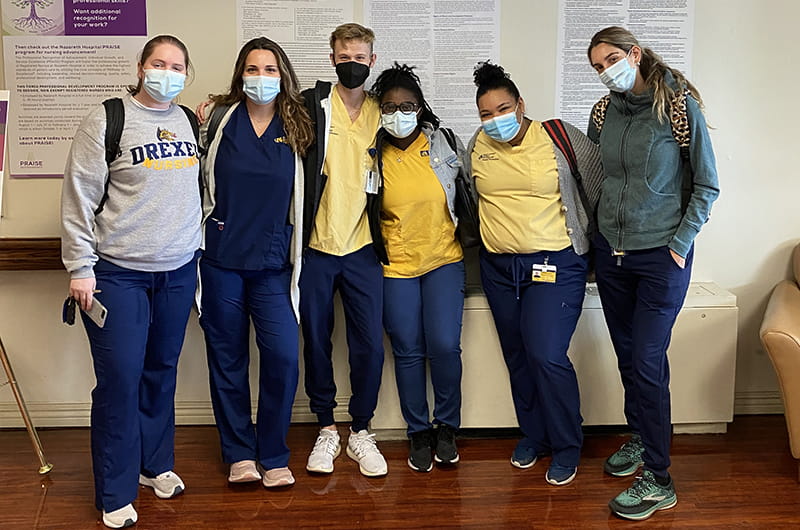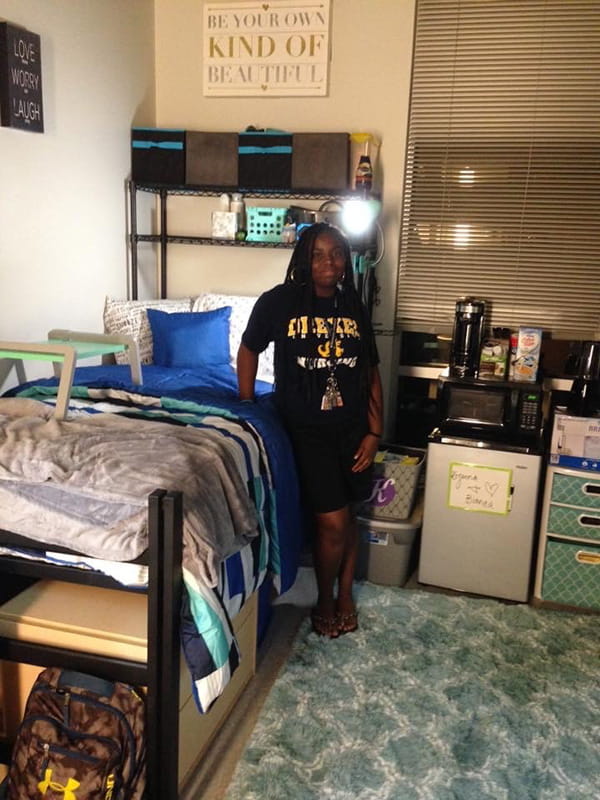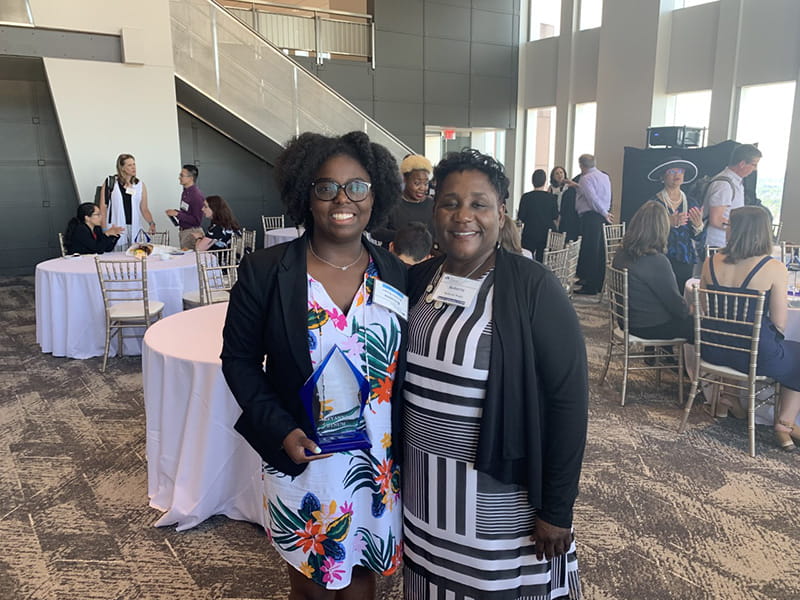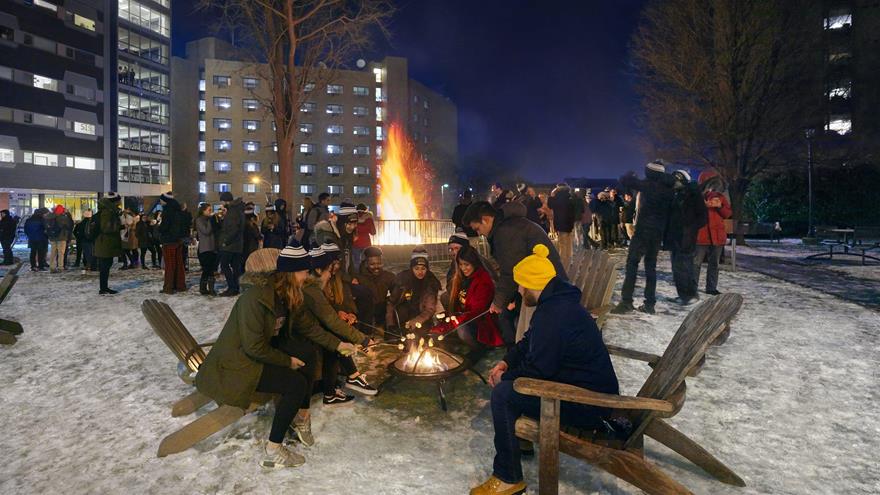How to Find Your People, Stay True to Yourself When Starting at Drexel

Bynum (third from right) poses with fellow nursing students during the last academic year at their final clinical.
Don’t be afraid to ask for help.
Step out of your comfort zone.
There’s something for everyone at Drexel — a club or organization for every interest.
Don’t let opportunities pass you by.
These are all important pieces of advice for students starting their college journey. It’s advice I got when I started at Drexel, and it’s advice I’d give now as an alumna to the new classes of Dragons starting their on-campus journey this fall.
But as with all great advice, it’s much easier said than done. As a first-generation college student and graduate of a college prep high school, I was just “the one” — the one that would end up in college, at a school like Drexel. It was never a question. But all my friends and family who told me I was “the one” couldn’t have warned me about how the transition would feel. In some of my first classes, it immediately hit me that I was no longer a big fish in a small pond. I was no longer in an environment like my predominantly Black high school, where most of my peers looked like me. I was no longer the smartest person in the room. Soon, the questions and the doubt crept in.

I remember sitting in my dorm room in Millennium Hall that fall and asking myself, “Am I supposed to be in college? Am I just here because this is what everybody told me I was supposed to do?”
No one tells you how to fight through these feelings. There’s no one-liner to combat the complexity of imposter syndrome and self-doubt. That’s why you need people. Not a slogan or a mantra — real people who understand you, with whom you can be your authentic self. They can be friends, professors, mentors from co-op or other areas of the University. They’ll anchor you to your true essence, to your dreams and your goals. They’ll be there to push you in the times that you’re unable to push yourself.
Find them. Soon. And hold onto them. And just as importantly, learn to let go of the opportunities that aren’t for you, of the people who aren’t your people. Just because there’s something out there for everyone doesn’t mean that everything out there is for you.
The other thing about all this great advice is that when you ask the giver how it can be achieved, you’ll usually get a complicated answer, if you receive one at all. My advice for how to find your people is no different. All I can do is relay my own experience.
When I came to Drexel in 2016, our chapter of the NAACP had just been started. The chapter had a meeting space in what is now the Academic Building and that became a place on campus for Black and brown students to go and hang out — a safe space we created for ourselves. Fast forward to 2020 and the climate around the pandemic and the civil unrest following the murder of George Floyd. Drexel understood that Black students wanted answers and wanted a space to feel safe once again. Thus, the Center for Black Culture (CBC) came to fruition and I was so happy to help make it what it has become today as a member of the first Advisory Board.
The CBC is where I found my village, my people, my home away from home. It’s time for you to find yours, and you will. Find the place and the people who make you feel safe, who embrace all that you are — every facet of your identity. You won’t find this everywhere. Just because you are welcome somewhere doesn’t mean it’s where you feel most at home.

And even within these cherished spaces, it’s important to respect differences. Through the CBC, I learned that everyone’s Blackness is different. Whether you're a Caribbean, African, African-American, whether you grew up in a suburb or a city, we are all under this umbrella term of being Black or African-American, but all of our identity bases and our cultures are different. And these differences are not only respected, they are celebrated. No one is expected to conform. No one is expected to be someone they’re not.
Over time, living on campus, you’ll figure all this out for yourself. You’ll find your friend group, your home away from home, the people who accept you and understand you, who care about you and find joy in watching you succeed.
They’ll be there to help you and support you.
They’ll enable you step out of your comfort zone.
They’ll share or support your interests, and respect and celebrate your differences.
Knowing them will give you the opportunity to be the best version of yourself you could ever be.
Keyanna Bynum, BSN ’21, was on the Center for Black Culture 2020–2021 Advisory Board. She can be reached at kb3278@yahoo.com.
In This Article
Drexel News is produced by
University Marketing and Communications.
